Share post now

global
The Alliance Sud magazine analyses and comments on Switzerland's foreign and development policies. "global" is published four times a year (in german and french) and can be subscribed to free of charge.
Interview with UN Administrator Achim Steiner
27.09.2024, International cooperation
Globally, the United Nations Development Programme (UNDP) is an effective and welcome cooperation partner, says its Administrator Achim Steiner. He is concerned over dwindling financial support from countries like Switzerland. Interview by Laura Ebneter, Marco Fähndrich and Andreas Missbach
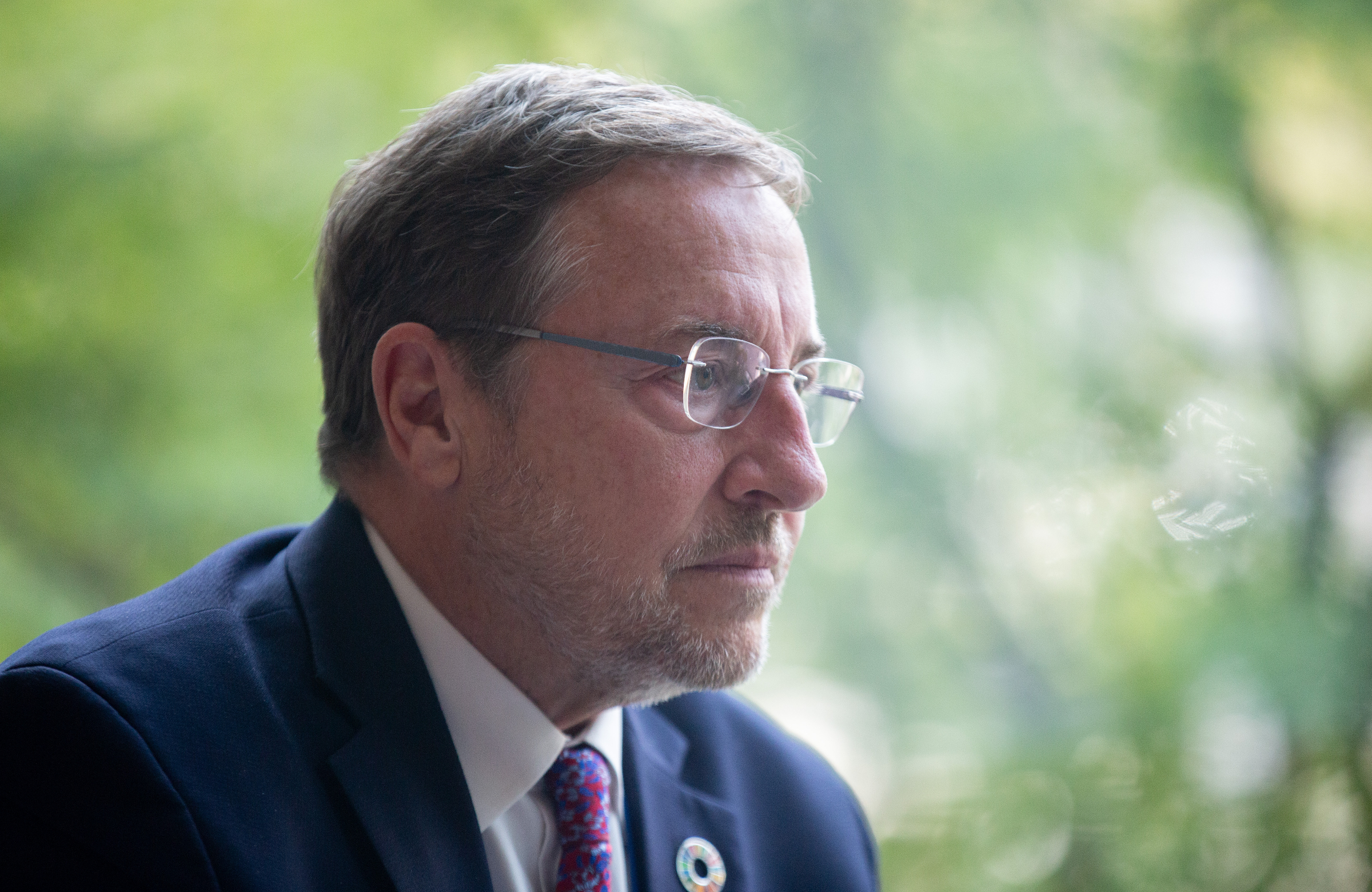
Achim Steiner, Administrator of the UN Development Programme (UNDP), during a meeting at UN Headquarters in New York, 2023. © UNDP / Fouad Juez
Mr Steiner, you grew up in Brazil as the son of German parents: how has this dual nationality influenced you?
The experience of growing up in different countries and cultures is rather satisfying. It enabled me to find a way to feel at home and to work all over the world. I have also learned how to see the world from other perspectives. Much of what is going wrong in the world today has to do with our failure to really understand one another. But when I visit an island country in the Pacific or a Caribbean country, it is instantly clear how much life in those places depends on climate policy in the rest of the world.
Before working for the UNDP, you were Executive Director of the United Nations Environment Programme (UNEP). How do these institutions complement each other?
UNEP is a bridge between academia and politics; it inspires international norms. With the Montreal Protocol, UNEP paved the way for one of the greatest successes of international environmental policy as regards repairing the ozone layer. UNDP has a different focus and stands by and supports more than 170 countries in pursuing their own development path, both socially and economically and also environmentally. I have been engaging with environmental issues for a very long time and my appointment as UNDP Administrator has closed a circle by bringing together environment and development. Indeed, the greatest challenge of our time is that of enabling eight billion people to live together sustainably and peacefully.
The greatest challenge of our time is that of enabling eight billion people to live together sustainably and peacefully.

Listening as a humanitarian mission: Achim Steiner (second from left) on a visit to war-torn Ukraine. © UNDP
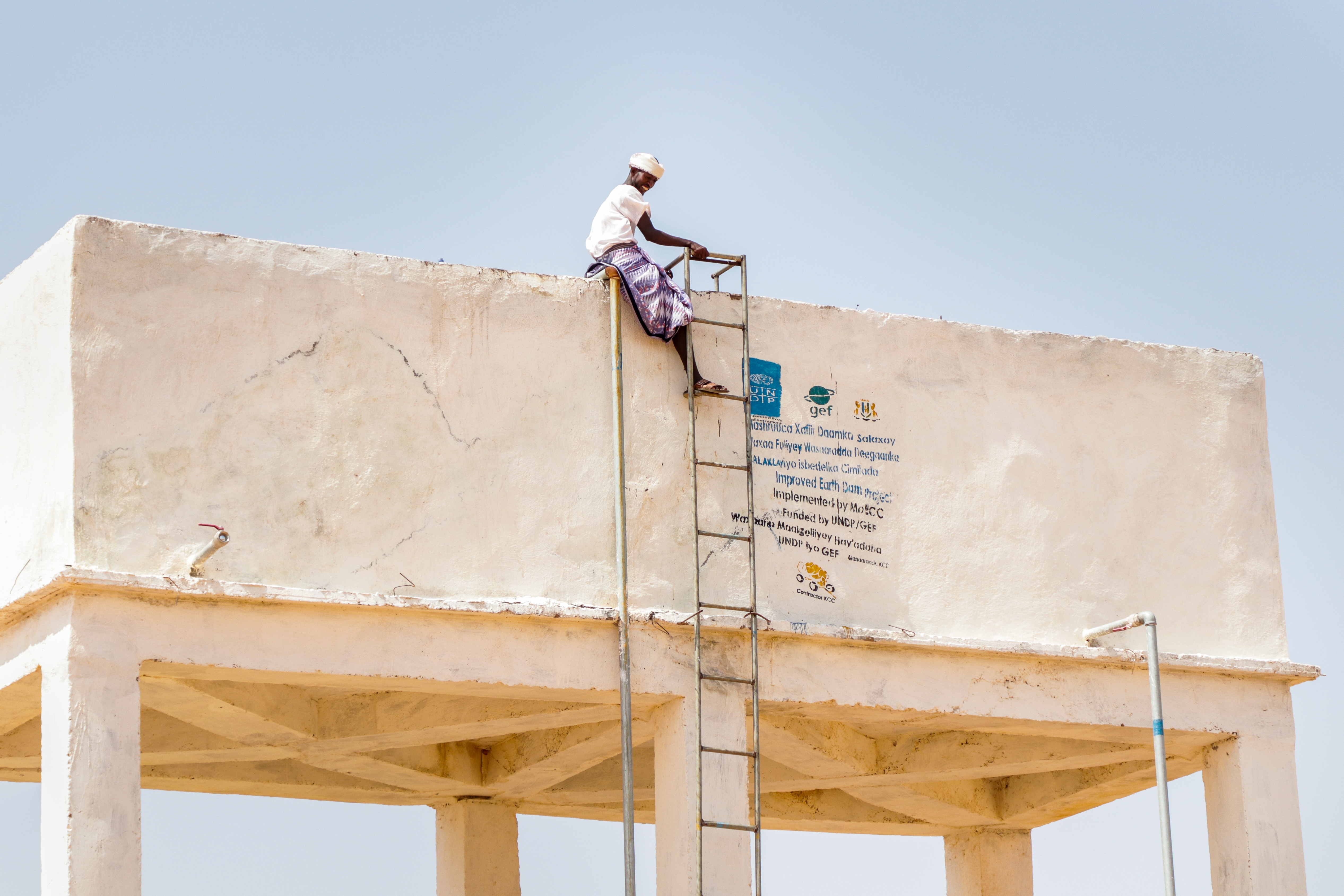
UNDP water infrastructure in war- and drought-affected Somalia supplies people, livestock and fields. At the same time, knowledge about environmentally friendly practices is being imparted. © UNDP Somalia
In its "Human Development Report 2024", UNDP concludes that uneven development progress is leaving the world's poorest behind – the opposite of the goal of the 2030 Agenda, that of "leaving no one behind". Where do you see the principal levers for preventing any further widening of the gap?
Against the backdrop of the pandemic and the numerous crises and conflicts, the results are sobering at first glance. With the 2030 Agenda, we had set ourselves ambitious goals. But as so often happens, we make plans and there are setbacks. Let us not forget, however, that we have also made enormous progress over recent decades, which, regrettably, is not perceived as such by the public. In 1995, there were 16 million people worldwide connected to the internet. By 2025, over 6 billion will be connected; more than the entire global population in 1995. Access to electricity has also improved massively. International cooperation has contributed appreciably to this...
... and yet, that is cold comfort in the light of the multiple crises across the world.
That is also true. We are facing a situation in which the poorest countries may no longer be able to repay their debts, Sri Lanka being one example. There are almost 50 countries that are spending more than 10 per cent of their national budget on debt servicing alone. This is why we are witnessing cutbacks in education and health services, so that interest payments can be made; this cannot be conducive to development. And when a country can no longer provide its people with food and fuel, they take to the streets.
Let us not forget, however, that we have also made enormous progress over recent decades. International cooperation has contributed appreciably to this...
Investments are needed now more than ever. And yet donor countries are reducing their funding...
The rich OECD countries disburse just about 0.37 per cent of their Gross National Product for international cooperation. Considering the enormous tasks and possibilities of our time, I am deeply concerned over the fact that, especially in traditional donor countries, we are not obtaining the funding required for our work. And this, even though we have demonstrated how much more we can achieve through collaboration.
What are you asking of politicians?
Parliamentarians must have an honest discussion about international cooperation, and recognize that national interests are being increasingly championed in the global context. Governments act out of political opportunism, and turning away from joint solutions is extremely shortsighted and ultimately irresponsible. Let us take climate change: it is no longer a question of whether it exists but of how we can combat it in all countries. It is a failure that we are unable to represent these correlations more clearly, that in many countries we continue to rely on fossil fuels instead of promoting renewables. At the same time, we are well aware that thousands of people in Switzerland, Germany and other European countries are now dying prematurely every year on account of the heat.
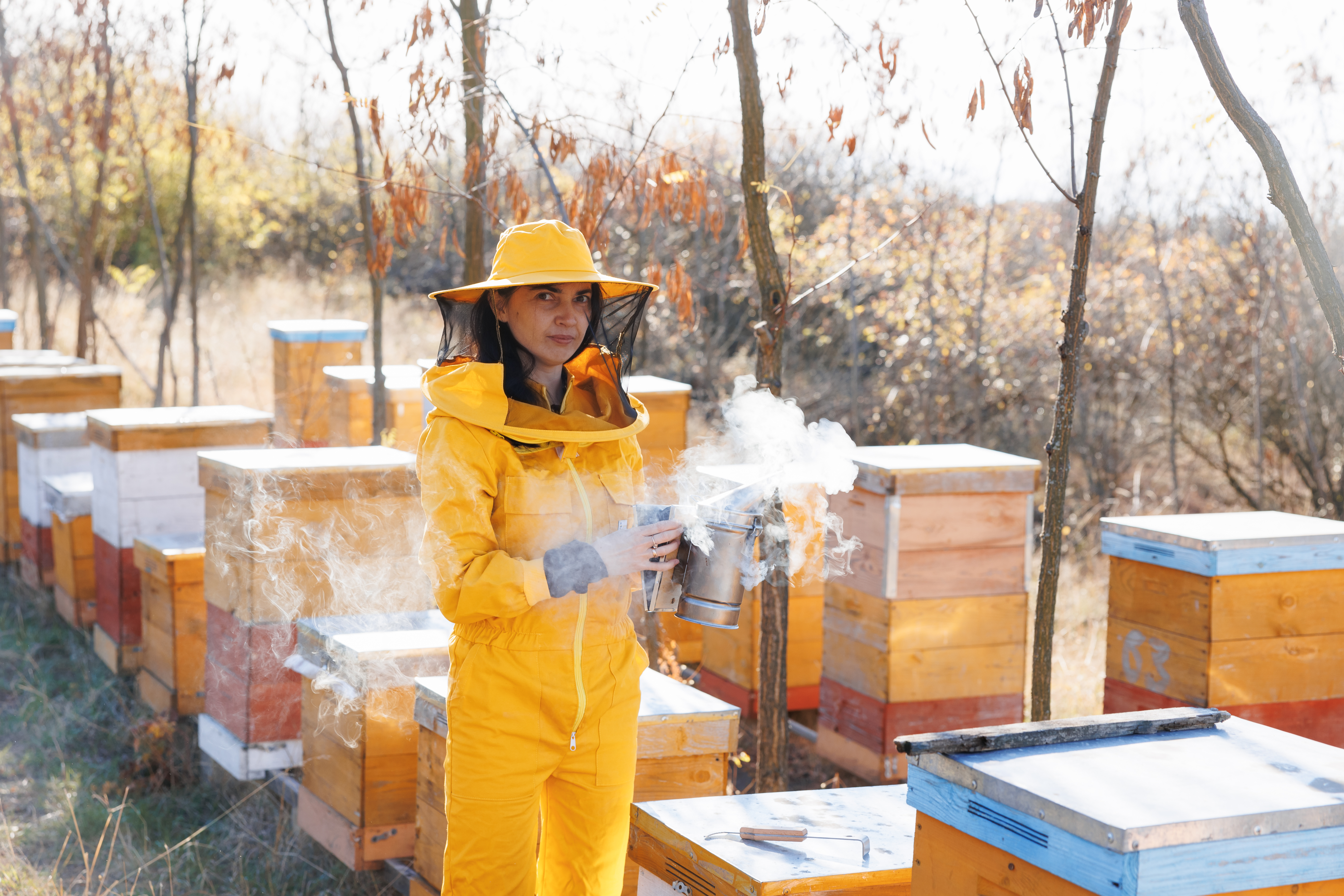
In Rezina, a structurally weak region of Moldova, Doina Pantaz was trained as a beekeeper in a UNDP programme and learned a lot about climate adaptation. © UNDP Moldova

Divers place processed corals on the seabed at Pointe Jérôme, Mauritius. The UNDP wants to restore the severely damaged coral reefs in Mauritius and the Seychelles.
© UNDP Mauritius / Gérald Rambert
Is it coming to international attention that Switzerland, too, is scaling back its commitment?
Up to five years ago, Switzerland was a model of international cooperation – the country recognised the importance of multilateralism, especially for a small country. Regrettably, Switzerland has been making successive cuts to its UNDP contributions, even though it still remains a significant donor. Without the United Nations, the room for manoeuvre of small countries in crisis regions tends towards zero. Switzerland has played a strategic role since joining the UN. If it takes a step back, its reputation and influence will also dwindle.
Up to five years ago, Switzerland was a model of international cooperation. Regrettably, it has been making successive cuts to its UNDP contributions.
What part is being played by the growing polarisation in the world?
The polarisation is hampering international cooperation and leading towards an impasse. My greatest concern is that the world is increasingly drifting apart instead of cooperating. Over the past year, 2443 billion dollars were spent on defence and the military. Not only is this a historic record but also an indication that confrontation is on the rise. There are concrete reasons for this, such as the war in Ukraine and conflicts in Myanmar or Sudan. Yet the world's problems can only be solved if, despite their diverging interests, the various countries are able to work together, whether on averting the next pandemic, on cybersecurity or on climate change.
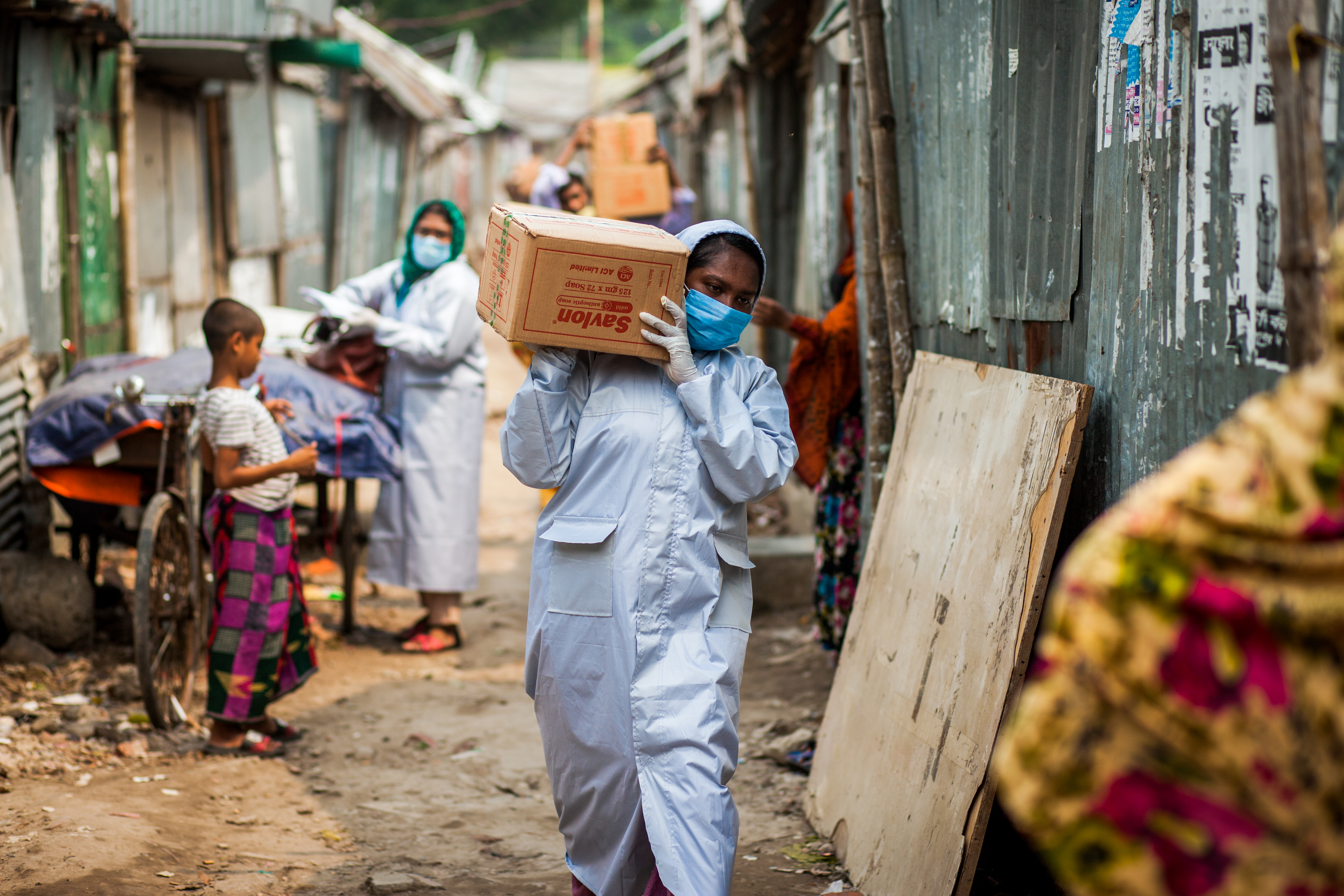
During the COVID-19 pandemic, UNDP teams distributed essential goods in Bangladesh and elsewhere. © UNDP Bangladesh
How is the war in Ukraine impacting the work of the UNDP?
Unlike the UN's political bodies, the Security Council, for example, we have the advantage of being a welcome partner in all countries of the world. We are amazed at the level of trust with which we are received in partner countries, above all because we are not an ephemeral organisation. We have been assisting some countries for decades, and such collaboration shows that international cooperation needs not be politicised, but that instead, it represents an offer to assist countries in pursuing their own path to development. I am witnessing this specifically with Bangladesh, where for years we have cooperated with various governments. Even in the current crisis situation with the transitional government of Mohammed Yunus, cooperation with the UNDP has not been called into question. The promise by the UN that countries can rely on the UNDP to concretely implement the concepts of international cooperation, remains a positive factor.
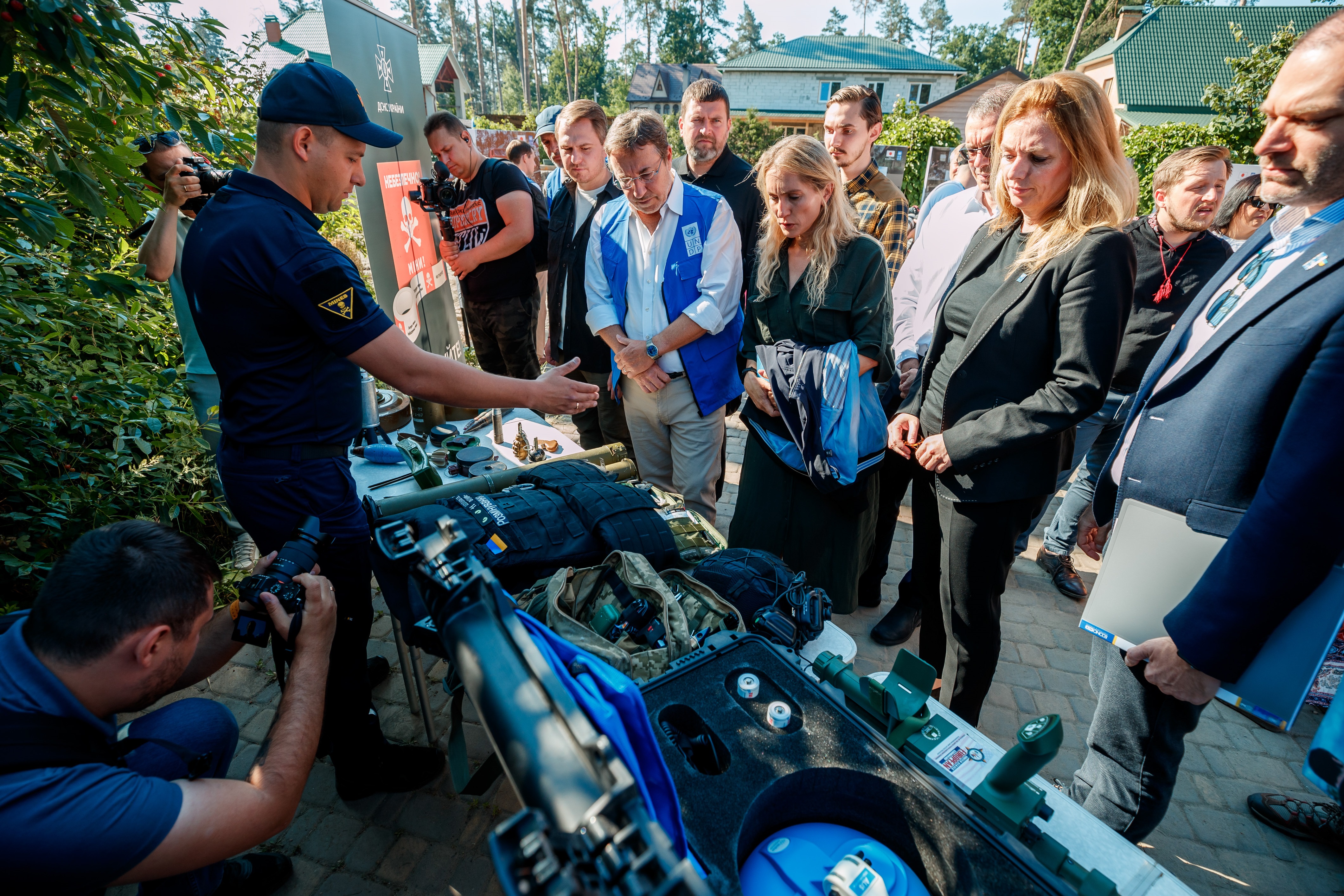
Mined land: Achim Steiner at a presentation of demining equipment in Ukraine. © UNDP
And yet the UNDP, too, is grappling with financial woes.
The quest for funding sources is doomed to fail if we lack basic trust in international institutions. Regrettably, the UN constantly elicits harsh criticism at the national level, for example, regarding Gaza. We are concerned by the fact that many countries wield dubious arguments as a basis for choosing bilateralism and withdrawing from multilateral action. The United Kingdom, for example, has drastically cut back the funding it provides, so that it can finance its asylum costs. This has been problematic for us, as an organisation like the UNDP needs solid core funding if it is to act transparently, effectively and accountably. In 1990, 50 per cent of funding was still uncommitted and freely available, today the figure is just 11 per cent of receipts. This is not sustainable for an organisation over the long term. We are thus losing one of the most important platforms that still make cooperation possible in a tension-ridden world.
UNDP: committed to sustainable development
The UNDP was founded in 1965 and is active in over 170 countries and territories. Its principal mandate is to help achieve the 17 Sustainable Development Goals (SDGs). The UNDP supports partner countries in three key areas of change, namely, structural transformation, leaving no one behind, and resilience building. With expenditure of 5 billion USD, the UNDP is the largest development programme of the United Nations. Switzerland contributed 89 million USD to the UNDP in the past year.
Why has international cooperation lost credibility over recent years?
International cooperation is not a laboratory but an endeavour to find solutions under the most difficult of circumstances. Fifty per cent of the work takes place in crisis regions: Yemen, Afghanistan, Myanmar are all high-risk regions, where we are striving to save lives. That things do not always go to plan or that things can even go wrong is simply reality. Unfortunately, donors are not very willing to continue to be supportive in the face of setbacks.
Have you any idea why development cooperation is constantly being confronted with false statements and exaggerated demands?
Regrettably, there is a concerted offensive against development cooperation, from the USA, to Scandinavia, to the German-speaking countries. It is a political campaign aimed at delegitimising international cooperation in national contexts, one example being the cycle lanes in Peru being sponsored by Germany, and which received widespread media coverage. These examples distort the view, but it is also our responsibility to communicate better and more clearly about our work.
In concluding, do you have a positive message?
Each year, the United Nations provides food aid for some 115 million people through its World Food Programme (WFP). This is possible thanks only to courage, international solidarity and the commitment of our local colleagues and partners.
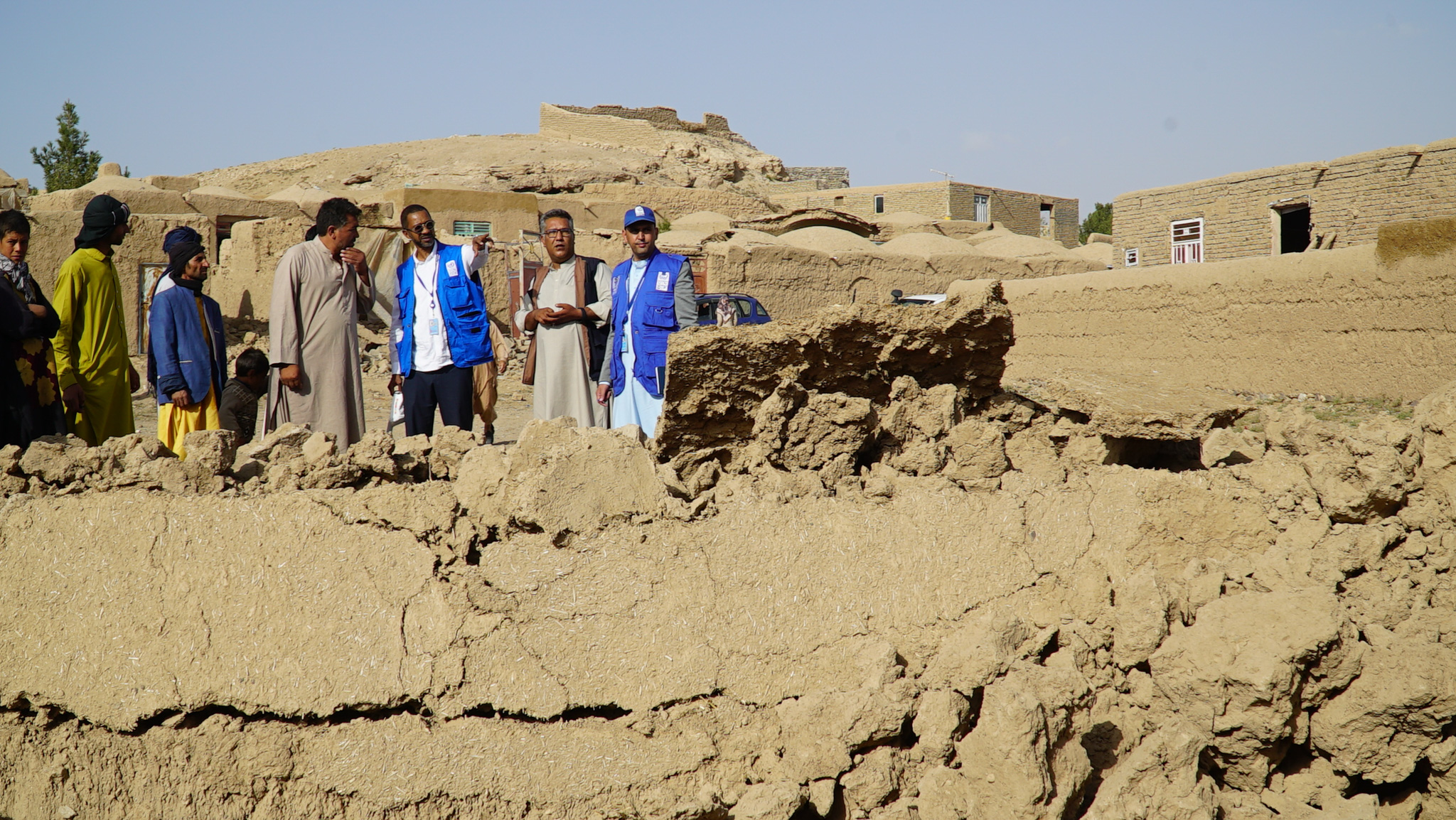
The 2023 earthquake in Afghanistan caused enormous damage. The UNDP has a great deal of experience in such fragile contexts. © UNDP Afghanistan
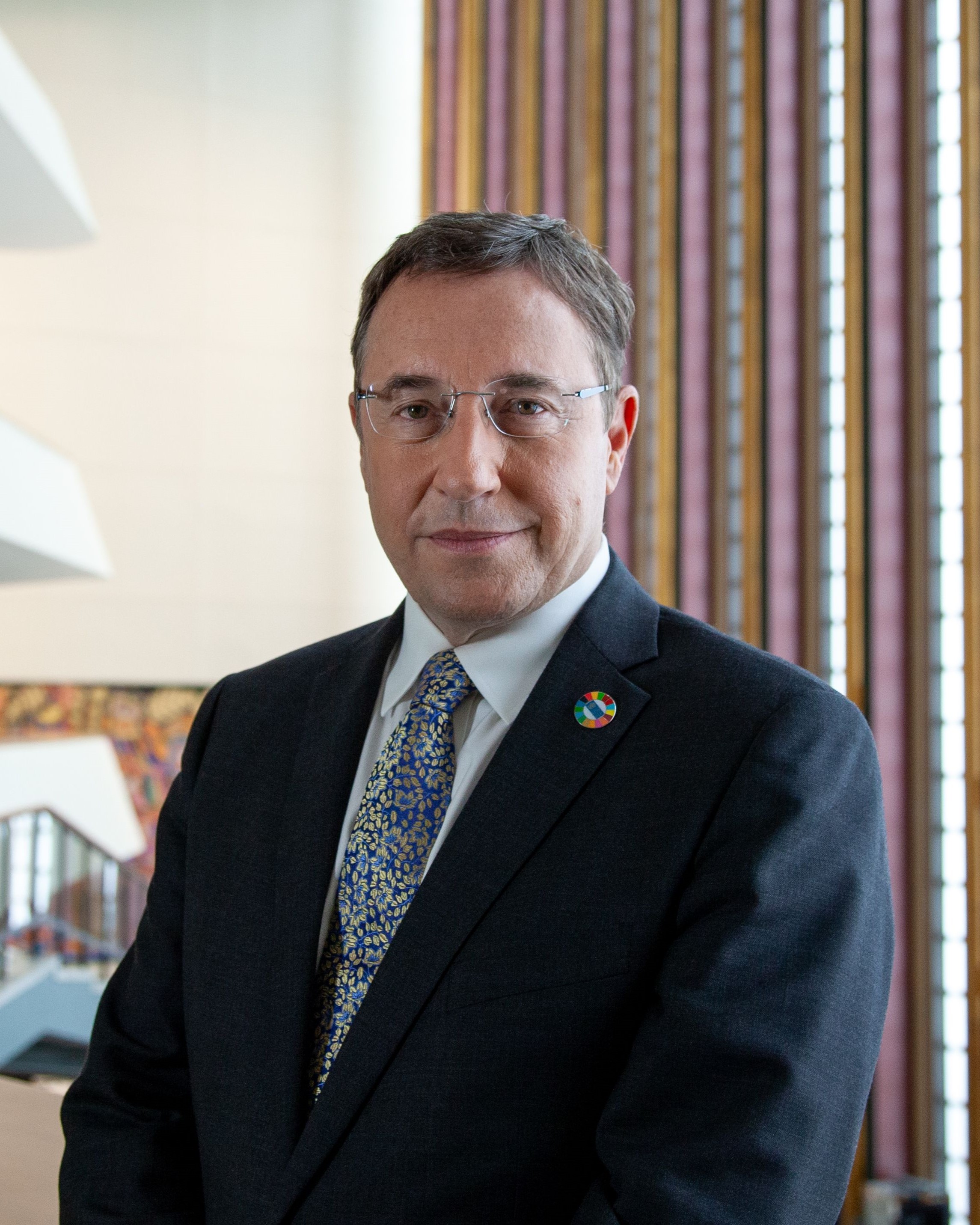
Achim Steiner
Born in 1961, Achim Steiner grew up in Brazil and Germany and studied philosophy politics and economics at the University of Oxford. He read for a Master's degree in economics and regional planning at the University of London. He also pursued studies at the German Development Institute (DIE) in Berlin and at the Harvard Business School.
Achim Steiner was Director-General of the International Union for Conservation of Nature (IUCN) and has worked with the German Society for International Cooperation (GIZ). Between 2006 and 2016 he headed the United Nations Environment Programme (UNEP) in Nairobi and the United Nations Office at Nairobi (UNON). Since May 2017, Achim Steiner has been Administrator of the United Nations Development Programme (UNDP) in New York. In 2021, he was confirmed by the United Nations General Assembly for a second four-year term as UNDP Administrator.
More about UNDP's work see here.
Share post now

global
The Alliance Sud magazine analyses and comments on Switzerland's foreign and development policies. "global" is published four times a year (in german and french) and can be subscribed to free of charge.